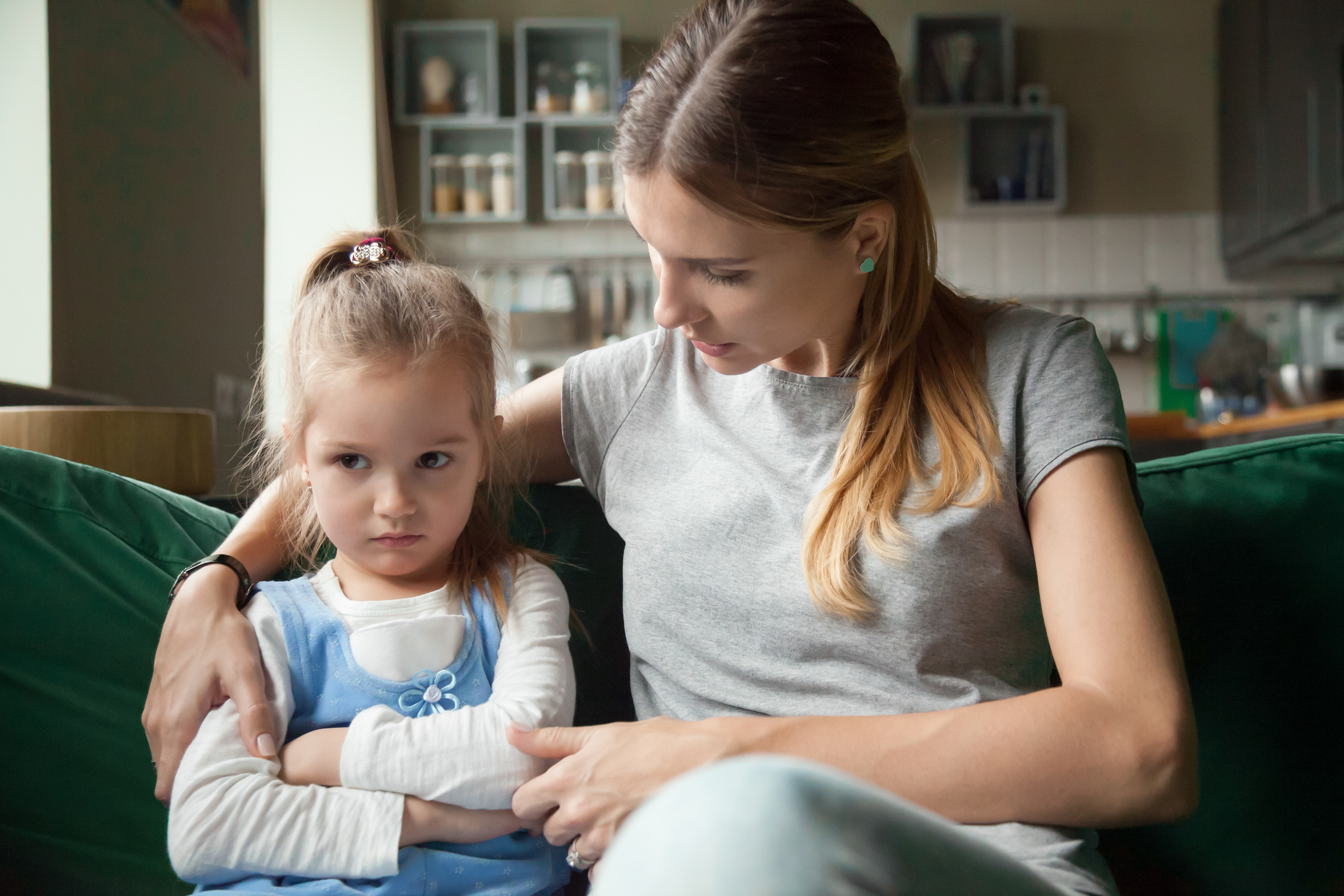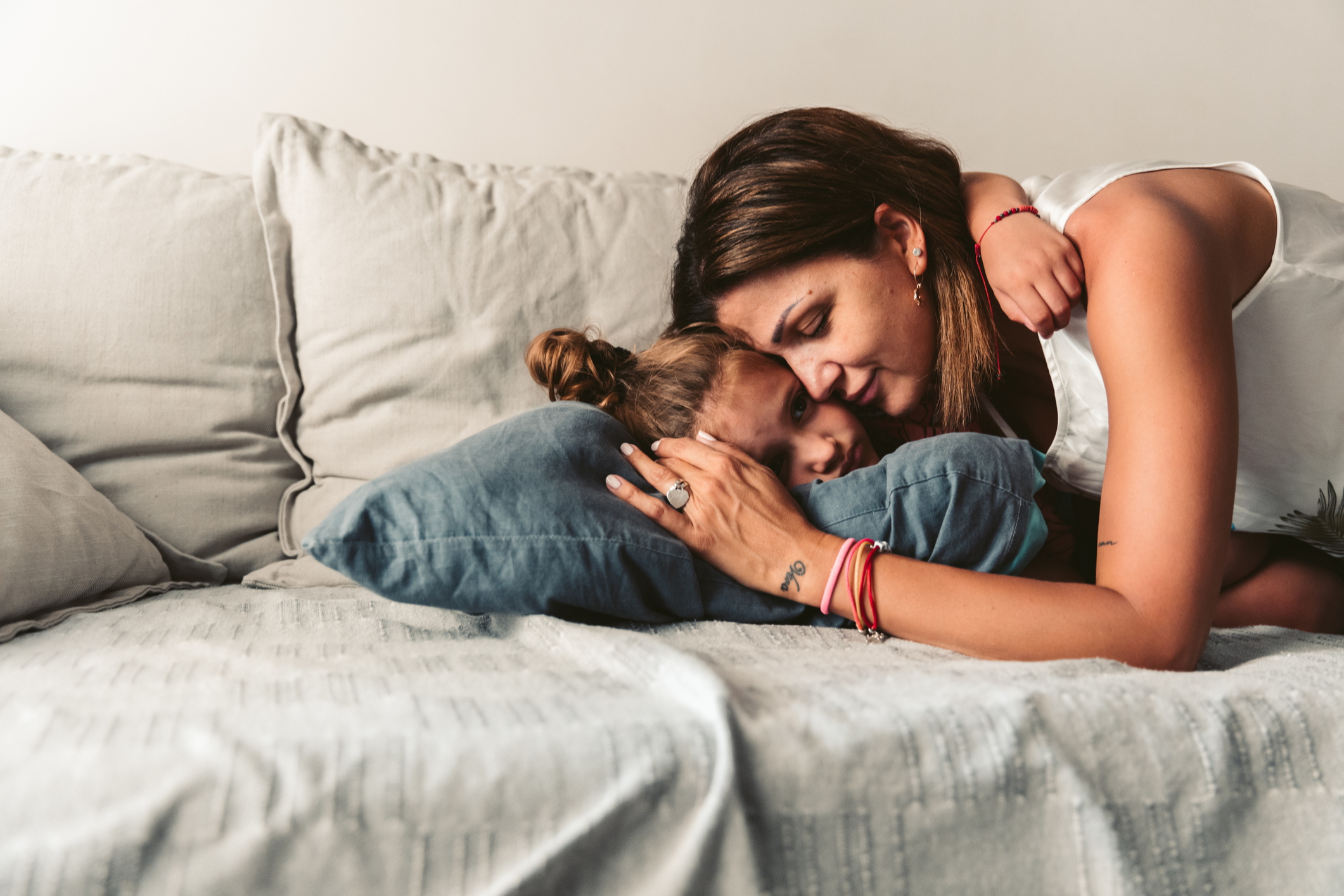
Before my daughter entered kindergarten, the types of drama I had to deal with were relatively simple. For instance, someone wouldn’t share a toy with her or she was the one being territorial. She didn't experience name-calling, grudges, or gossip. Generally, I found that most of the time, preschoolers get along. There are of course, a few meltdowns here and there — often due to tiredness or hunger — but nothing a hug, kiss, and snack couldn’t solve.
Then she entered kindergarten, full days with the same group of little beings sharing the same space, week after week. The first month or two were about adjusting to the new routine and being in awe of the novelty of school. Then friendships were made, rivalries were formed, and “he said/she said” arguments broke out.
Every night during our bedtime routine, she would tell me what went on at school that day. I would lie there, listening to her thoughts unravel.
“He told me he hates me. Now I don’t want to be his friend.”
“She keeps copying me. I don’t want to play with her.”
“I want to be her friend again but she won’t let me.”
I had no idea how much interpersonal conflict a kindergartener had until my daughter became one. At first, I would get swept up in her emotions and want to fix her problems. I’d tell her to find new friends to play with. I’d try to explain the other kids’ behaviors. I’d offer her ways to make peace with the other children. I’d lecture her about how she should care about what others think.
As I worried and fretted over my daughter’s social problems, she would quickly fall asleep. During the day while she was at school, I would ruminate about her drama, holding her emotional baggage close to my heart. At night, when I brought it up, she would tell me she was dealing with something else already.
Over time, I’ve begun to observe her emotional roller coaster instead of riding it with her. Here’s how I’m learning to not get too caught up in my daughter’s friendship drama:
Listen Before Responding
I think about the times when I’ve had an issue with someone and wanted to talk about it. Usually, what I’m looking for is an empathetic ear, not advice. I’m hoping that person will listen deeply and validate my emotions so that I can have clarity on what I’m trying to resolve.
So I do the same with my daughter. She may only be 5 years old and her problems may seem trivial and fleeting, but her concerns are real to her and she deserves to be heard. Instead of jumping to what I think she should do, I stay silent and let her speak.
I show her I’m listening by looking at her directly and giving her my undivided attention without getting distracted. I focus on her facial expressions and use open body language.
Ask Questions

As a mom, it’s hard for me to not judge and apply my personal opinion to my child’s matters. But when I assume and project my beliefs, it makes it challenging for me to stay objective and fully understand what she’s saying. It tempts me to interrupt her, jump to conclusions, and get irritated when she won’t listen to what I’m saying. Most importantly, I know that will only frustrate her and deter her from sharing further.
Instead of making assumptions and filling in the gaps with my thoughts, I try to reflect, remain curious and ask questions. For instance, I’ll often paraphrase what she’s saying to verify what I’m hearing: “It seems like you’re saying that…” or “Is that what you mean when you say…”
When she’s done speaking and I have an understanding of her issues, I’ll start a conversation that will encourage her to find her own solutions. I’ll ask her, “How do you think your friend was feeling when this happened?” or “If you could go back in time, would you have done or said anything differently? If so, what?” or “What can you do the next time so that it’s not as upsetting?”
Keep the Conversation Open
Sometimes, I’ll share stories about times when I had a similar experience — how I felt, what I did, and how my friends reacted. Instead of lecturing her about what to do, I tell her what I did in the situation. It helps her feel like she’s not alone; that her problems are ones that her mom has been through.
After our conversation, I like to ask her if there’s anything I can do to help or make her feel better. And on the following night, I’ll ask her about it even though I know she may have already moved on. This way, it keeps the dialogue open, gives her an opportunity to share how she resolved her issue, and ensures she knows she can count on me to help her feel confident through the ever-changing friendship drama.




